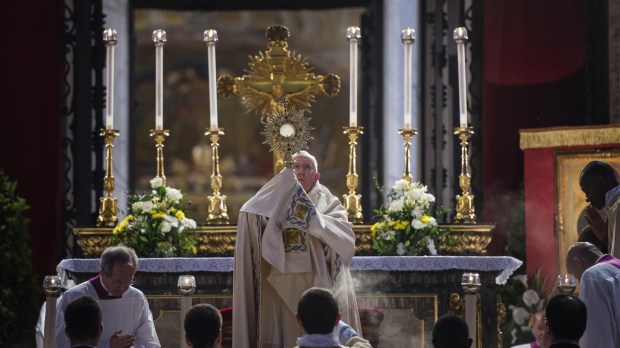VATICAN CITY — Pope Francis on Thursday evening celebrated the Feast of Corpus Christi with Holy Mass and a traditional candlelit Eucharistic procession in Rome.
The Eucharistic procession began after the celebration of Holy Mass at the Rome’s Cathedral Basilica of St. John Lateran — the See of the Bishop of Rome — and proceeded along the Via Merulana to the Basilica of St. Mary Major.
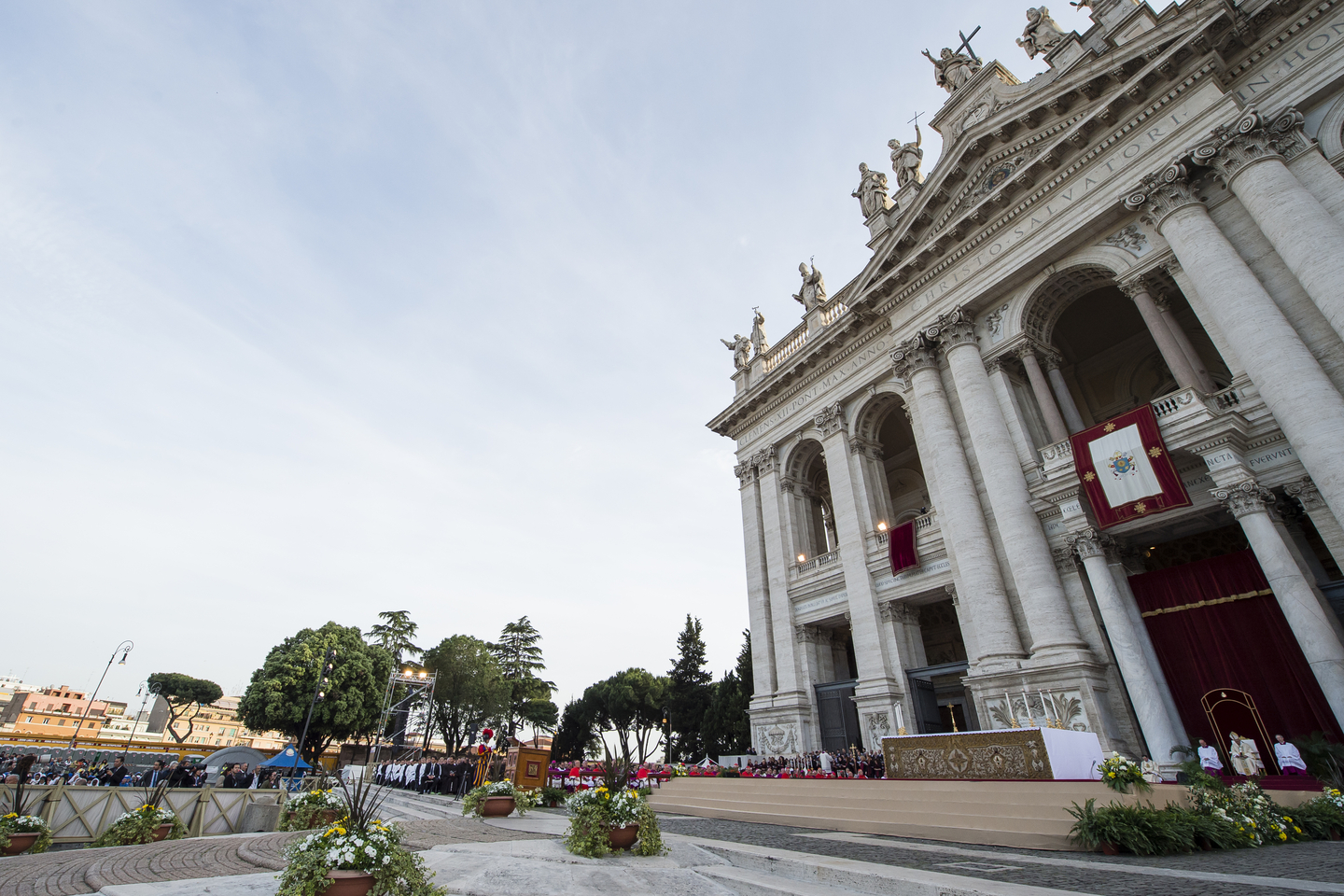
Although numerous bishops’ conferences throughout the world have transferred the celebration of Corpus Christi to this Sunday to accommodate the faithful, the Vatican liturgical calendar stays true to tradition, marking the Solemnity of Corpus Christi on the Thursday after Holy Trinity Sunday.
Waves of clergy, religious, and laity walked in procession singing Eucharistic hymns, listening to scriptural passages on the Eucharist, and praying litanies to the Blessed Sacrament, as onlookers along the streets and from the windows above watched as Jesus Christ truly present in the Blessed Sacrament passed by, accompanied by two deacons.
Pope Francis travelled by car to St. Mary Major, where he awaited the arrival of the Most Blessed Sacrament and concluded the celebration with the solemn rite of Benediction.
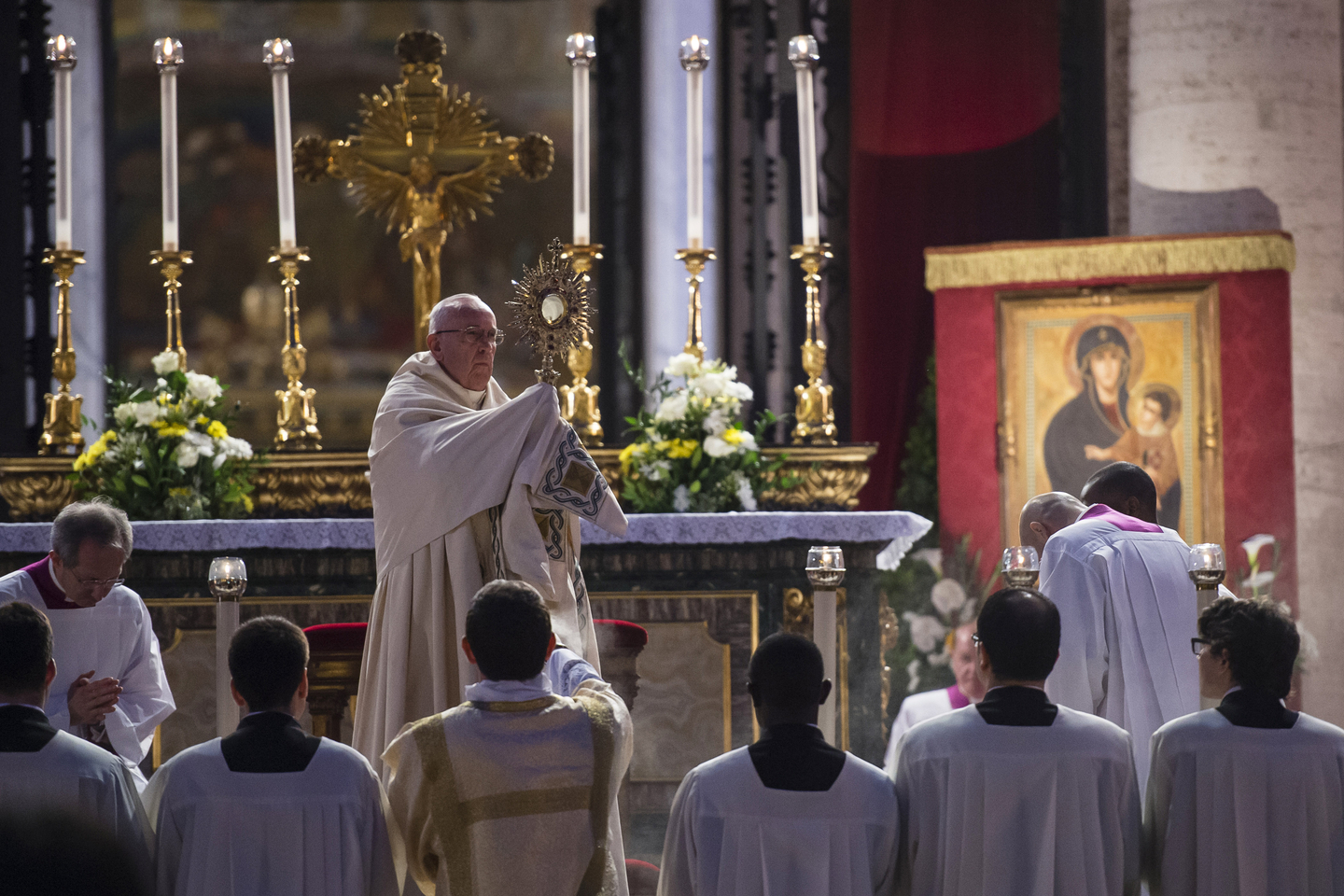
The famous image of the Blessed Virgin, the Salus Populi Romani, which is housed in St. Mary Major, was present at Benediction. It is before this icon that Pope Francis prays before and after his major apostolic journeys.
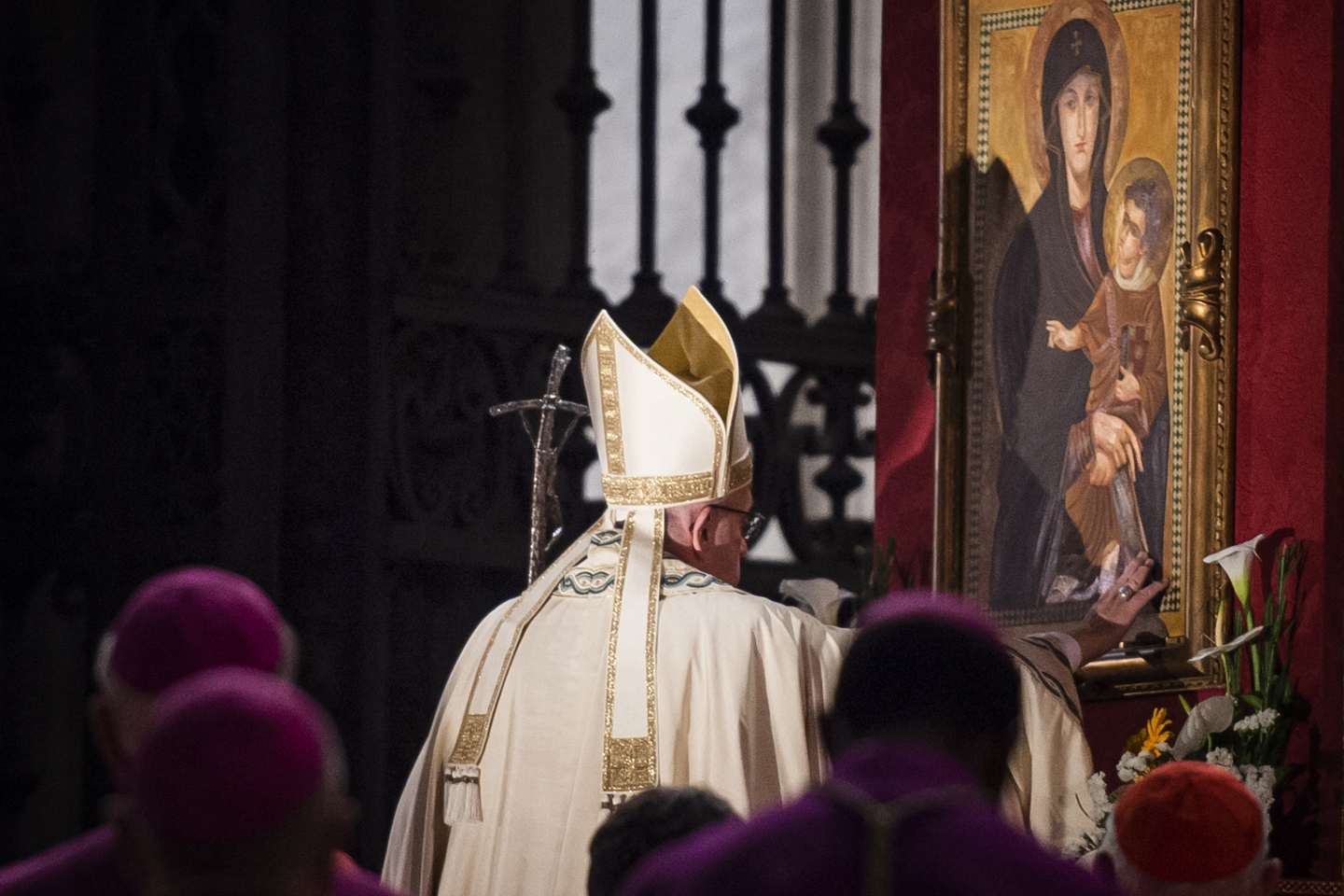
It was Pope St. John Paul II who, in 1982, restored the Roman custom of the Corpus Christi procession, which had not taken place for more than a hundred years. Known for spending hours before the Blessed Sacrament in silent prayer, and making long thanksgivings after Mass, John Paul II deeply loved the custom and continued it throughout his pontificate.
The Corpus Christi procession was also treasured by Pope Benedict XVI. In fact, in his homily for Corpus Christi 2012, Pope Benedict explained that a misunderstanding of Vatican II had led some Catholics, even priests, to think that Eucharistic Adoration and Corpus Christi processions are pietistic practices that pale in importance, or are somehow in competition with, the celebration of the Mass.
Yet, he said: “If I am truly to communicate with another person I must know him, I must be able to be in silence close to him, to listen to him and look at him lovingly. True love and true friendship are always nourished by the reciprocity of looks, of intense, eloquent silences full of respect and veneration.” If this dimension is lacking, he added, “sacramental communion itself may become a superficial gesture on our part.”
“To be all together in prolonged silence before the Lord present in his Sacrament is one of the most genuine experiences of our being the Church,” he said.
Pope Francis’ homily
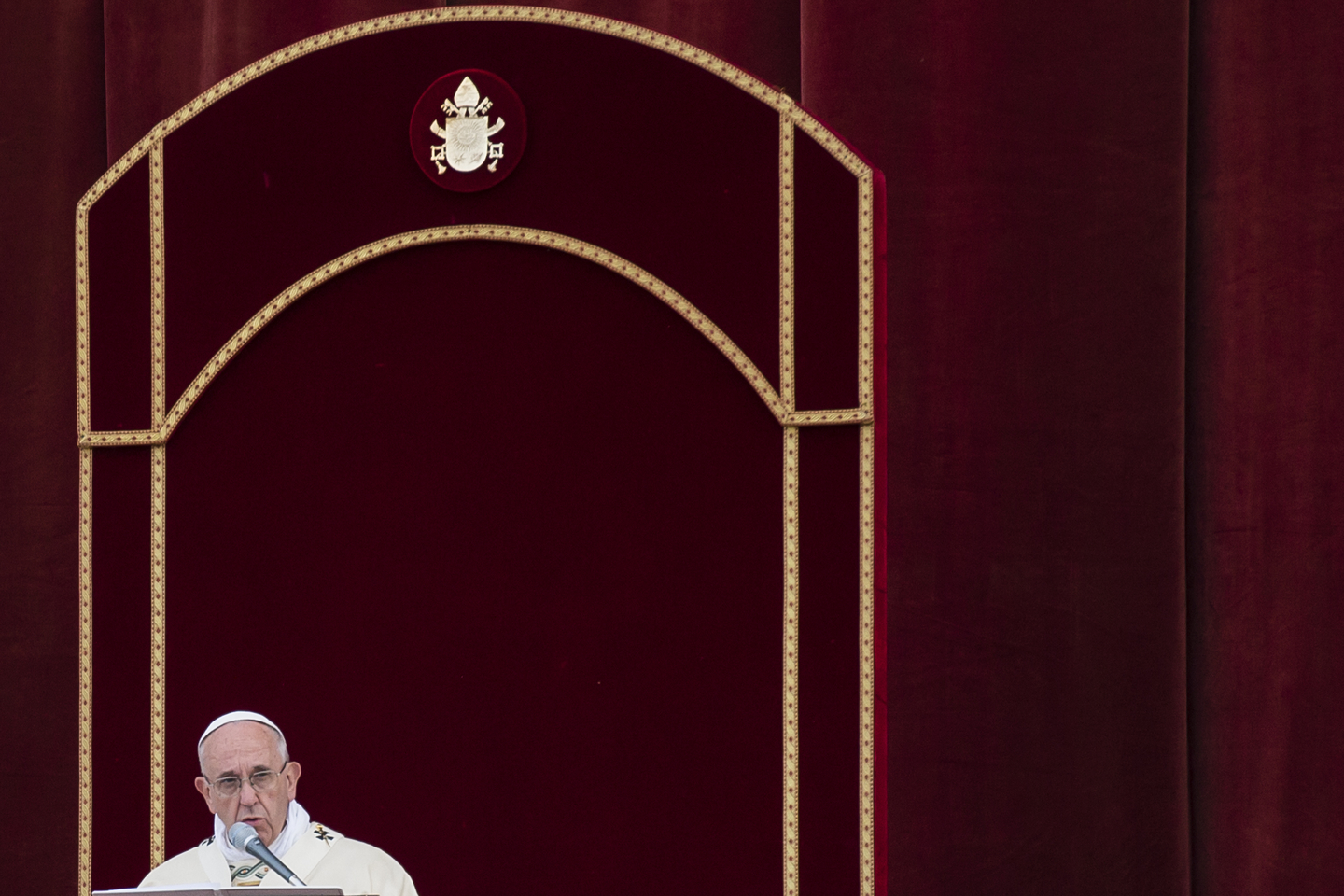
In his homily, Pope Francis offered a twofold meaning of the Lord’s command with which he instituted the Holy Eucharist at the Last Supper, telling the apostles: “Do this in remembrance of Me” (1 Corinthians 11:24-25). The pope focused on what the Lord did for us, and what he asks of us in response to his divine love.
“Do this”
The pope first underscored Christ’s will to establish a visible priesthood to perpetuate the sacrifice of the Cross throughout the ages, and his desire to satisfy man’s deepest hunger — his hunger for God — through the gift of his most holy Body and Blood.
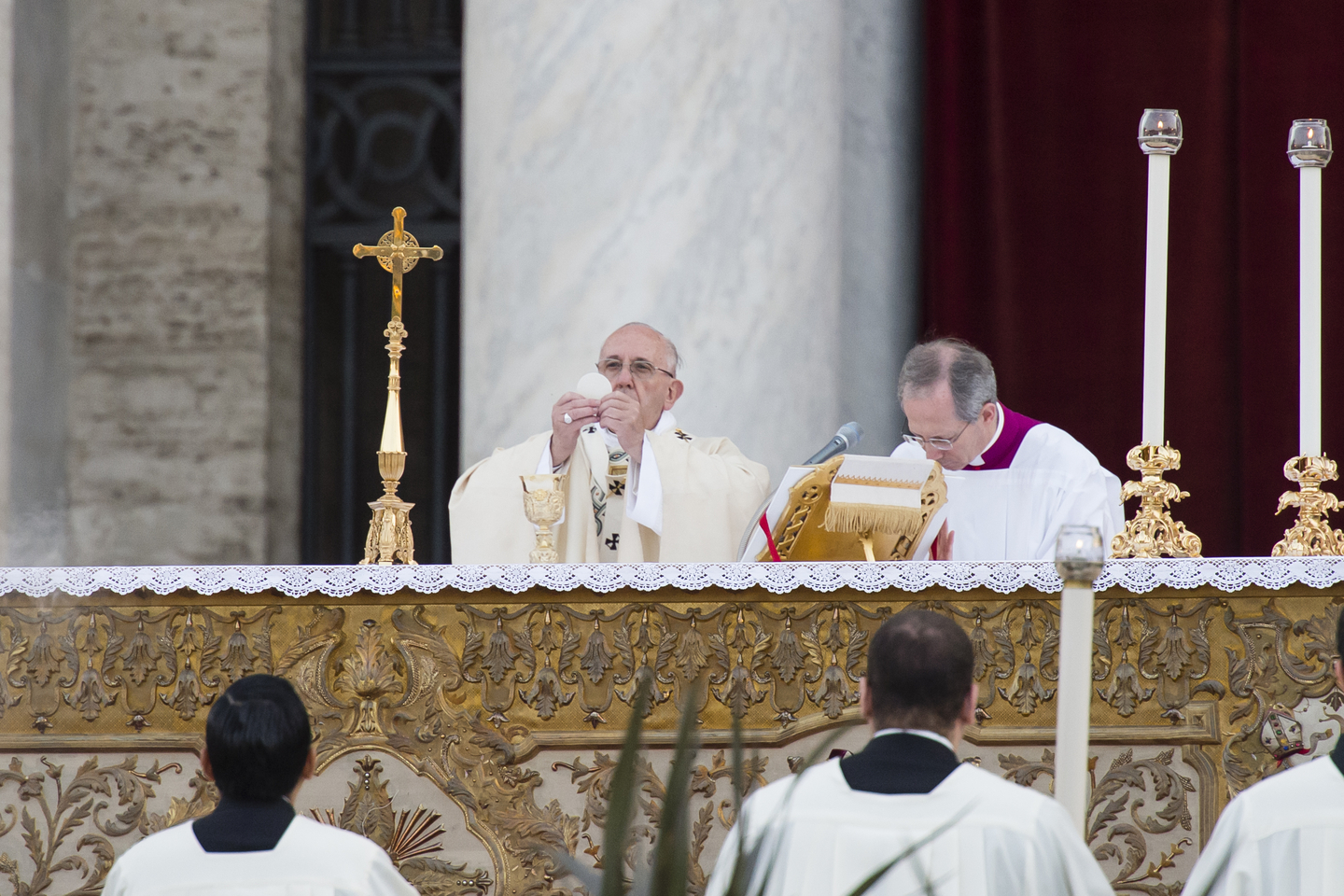
“It is the ‘doing’ of the Eucharist which always has Jesus as its subject, but which is made real through our poor hands anointed by the Holy Spirit,” Pope Francis said. The miracle of the multiplication of the loaves and feeding of five thousand, he added, “signals what Christ wants to accomplish for the salvation of all mankind, giving his own flesh and blood (cf. Jn 6:48-58).”
“Breaking ourselves”
The pope also recalled that, as members of Christ’s mystical body, all Catholics are all called to make the Eucharist the center and pattern of their lives, i.e., to “break ourselves” in self-giving for others, in union with Jesus who was broken for us.
Recalling the many saints who “broke themselves” for others, the pope highlighted the often hidden holiness especially of mothers and fathers who sacrifice themselves for their children in union with the Lord, as well as the many Christians who, “as responsible citizens, have broken their own lives to defend the dignity of all, especially the poorest, the marginalized and those discriminated!”
“Where do they find the strength to do this?” the Pope asked. “It is in the Eucharist: in the power of the Risen Lord’s love, who today too breaks bread for us and repeats: ‘Do this in remembrance of me.’”
Restoring Eucharistic Processions
Pope Francis concluded his homily by reminding Catholics of the unique service they offer to their communities and society by restoring the Corpus Christi Eucharistic Procession.
When Catholics take their faith, indeed the very object of their faith — in the True Presence of Jesus Christ in the Holy Eucharist — into the public square, he said, they respond to the Lord’s command by giving the food of the Lord’s presence “to the crowds of today.” Processing together in prayer with the Blessed Sacrament, he told those gathered in Rome, is “an act to break open our faith and our lives as a sign of Christ’s love for this city and for the whole world.”
Read the official English translation of Pope Francis’ homily here.
